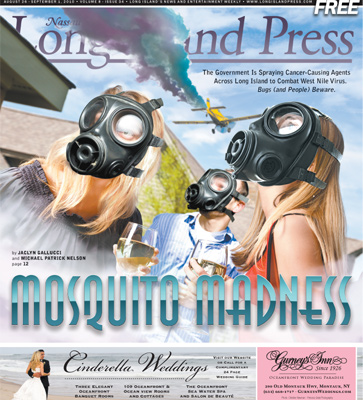
In this Aug. 16, 2012 file photo, mosquitos are sorted at the Dallas County mosquito lab. (AP Photo/LM Otero, File)
A Nassau County resident has been infected with West Nile virus, health officials said, making this the second human case of the virus on Long Island this year.
The Nassau County Department of Health said Wednesday that the person suffering from the virus lives in the Town of Oyster Bay and is over the age of 70. The health department said in a news release that the woman first fell ill with symptoms consistent with West Nile virus on July 27. She was hospitalized and is now recovering, officials said.
A spokeswoman for the health department said patient confidentiality laws restrict them from releasing more information about the woman, including where she lives.
As of this week, there’s been 58 positive tests of mosquito pools in Nassau this year. The number is even higher in Suffolk County where positive West Nile samples bloomed to 175 as of last week.
A Suffolk resident was diagnosed with the virus earlier this month, officials said.
The news of another human case comes the same day that officials from the Center for Disease Control and Prevention reported that the number of illnesses nationwide has tripled compared to previous years.
“We’re in the midst of one of the largest West Nile outbreaks ever seen in the United States,” Dr. Lyle Petersen of the CDC said, according to the Associated Press.
So far this year, 1,118 illnesses have been reported. In most years, there’s fewer than 300 cases reported by mid-August.
Forty-one people have died from the virus this year.
Tips to eliminate mosquito breeding:
- Remove or empty standing water from children’s outdoor toys, flower pots, garbage cans, pails, or any object that can hold water.
- Make sure roof gutters drain properly.
- Keep swimming pools chlorinated and their covers free of stagnant water.
- Change the water in birdbaths every two or three days.
- Install window and door screens and keep them in good repair.
- Consider wearing long sleeves, pants, socks and mosquito repellent (according to directions) if outdoors when mosquitoes are active, especially in the late afternoon and evening hours.
- Decorative ponds and water features should be circulated or chlorinated if they do not contain fish to prevent mosquito breeding.
–With Associated Press




